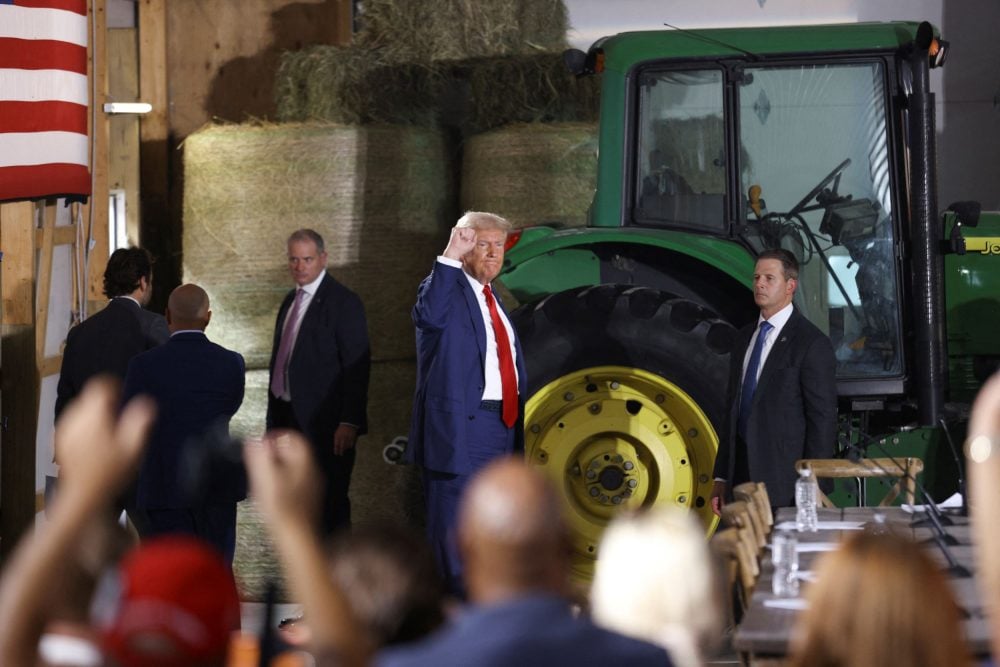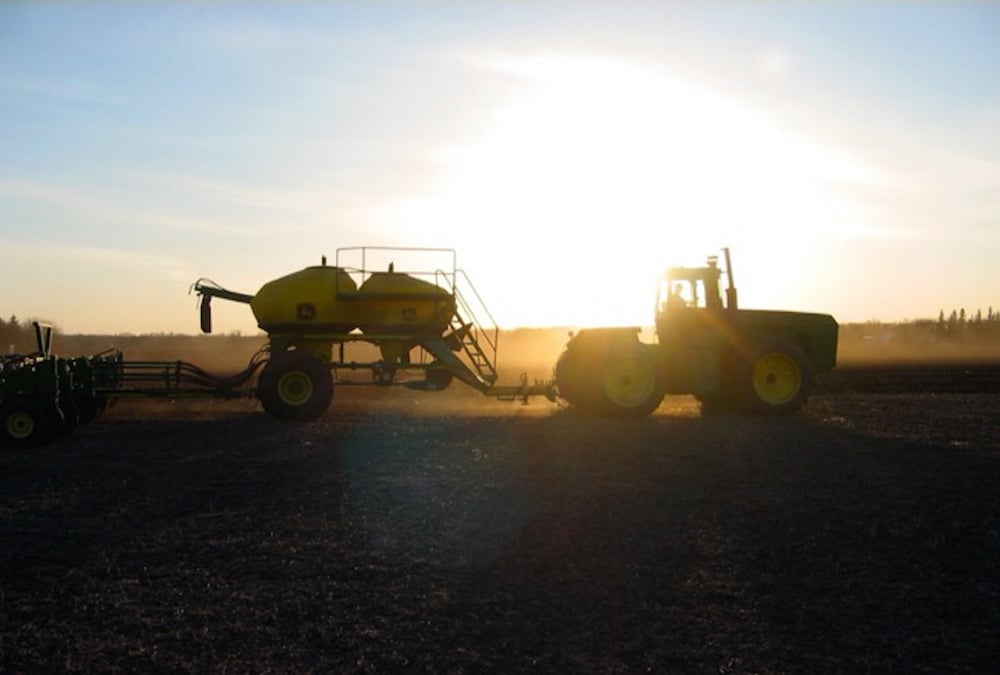No immediate tariffs means more time to engage, prepare say ag, food leaders

No immediately-imposed tariffs means more time to engage with American officials on the importance of free trade and to prepare for future negotiations say agriculture industry groups say.
“This measured decision provides a valuable opportunity for the Government of Canada and our fruit and vegetable sector to engage with stakeholders and underscore the benefits of fair and free intercontinental trade,” the Fruit and Vegetable Growers of Canada said in press release on Monday.
Citing an official in Trump’s incoming administration, Reuters reported this morning that Trump doesn’t plan to immediately impose threatened 25 per cent tariffs on imported Canadian goods. He will rather “direct agencies to investigate and remedy persistent trade deficits and address unfair trade and currency policies by other nations.”
Read Also


AAFC forecasts more Canadian wheat acres, less canola in 2025
Canadian farmers will plant more wheat and coarse grains in 2025 at the expense of oilseeds, according to the first supply/demand projections for the 2025/26 marketing year from Agriculture and Agri-Food Canada, released Jan. 20.
Trump made no specific mention of Canadian tariffs in his inauguration speech, today, though he did reiterate his plan to create an “External Revenue Service” to collect duties and revenues from foreign countries.
“I will immediately begin the overhaul of our trade system to protect American workers and families,” Trump said in his speech. “Instead of taxing our citizens to enrich other countries, we will tariff and tax foreign countries to enrich our citizens.”
While it was good to hear immediate tariffs were unlikely, the news shouldn’t be “cause for celebration at large,” said Lauren Martin, senior director of public affairs at the Canadian Meat Council.
“We are still aware we’re preparing, I suppose, for a marathon, not a sprint.”
“There’s still the upcoming CUSMA review which we have in our sights,” Martin said.” We want to make sure that Canada is in the best position it can be in for those upcoming consultations.”
Martin said Trump’s rhetoric suggests he will press on with tariffs.
“Every conversation to date suggests that he is looking at trade and he is looking at tariffs as one of the ways in which to increase his revenues in the U.S., but also put American citizens in a better position.”
“Whether or not tariffs (do that) though, is something that Canada, we question, but all of his actions have pointed to that being President Trump’s line of thinking,” she said.
Internal pushback
One possibility for the change is that Trump’s allies are advising him against moving forward with the tariff plan, said Keith Currie, president of the Canadian Federation of Agriculture (CFA).
“That’s just me guessing,” Currie said, “but based on conversations we’ve had with people in the States, they were just as concerned about the tariffs and what it was going to do to the economy and their businesses as we were.”
Currie said his conversations with agriculture leaders in Iowa at the start of January led him to believe there had been resistance to Trump’s proposed tariffs.
“Talking with a number of the state senators down there, they are collectively pushing their governors to get in Trump’s ear and say, ‘don’t screw this up.’”
William Reinsch, a trade expert at the Center for Strategic and International Studies shared a similar sentiment.
“It sounds like maybe he’s been listening to the people telling him that immediate tariffs would really hurt the financial markets,” Reinsch told Reuters.
Currie said he thinks Trump will put his efforts toward a “trade country of origin type of process.”
When it comes to “China, certainly he’s hunkering down,” Currie said, though he added Canada could be an “easy target” because of its smaller economy.
Sylvain Charlebois, Director of the Agri-Food Analytics Lab at Dalhousie University, said via a post on X (formerly Twitter) he does not expect Trump to follow through on his threats.”
“Almost two months ago, (I) stated President Trump would never issue tariffs on agricultural commodities and agri-food products destined for the U.S.,” Charlebois wrote. “Still believe this to be the case.”
Source: Farmtario.com

